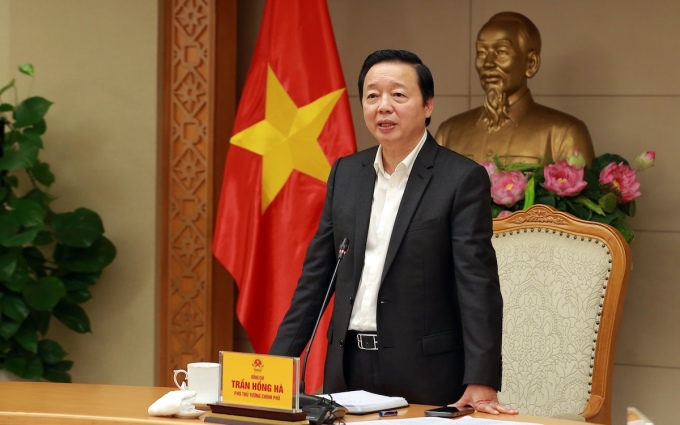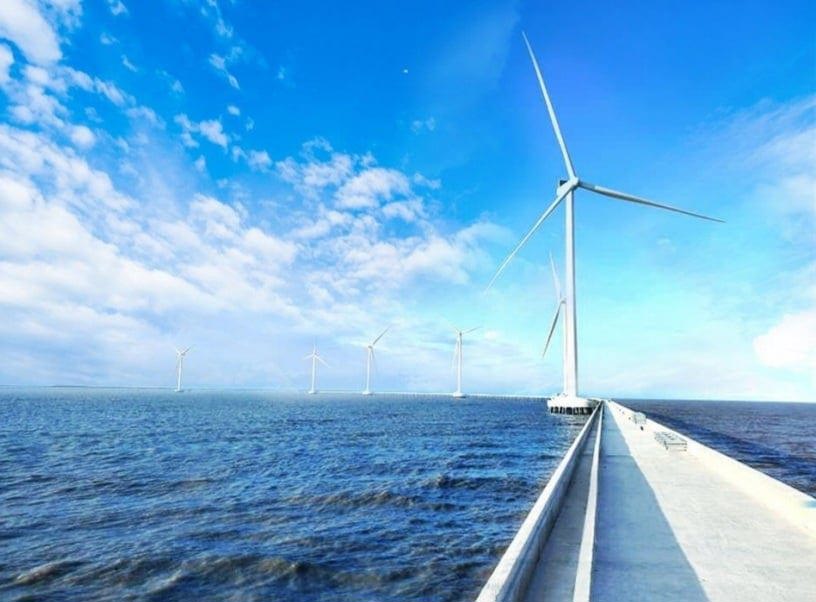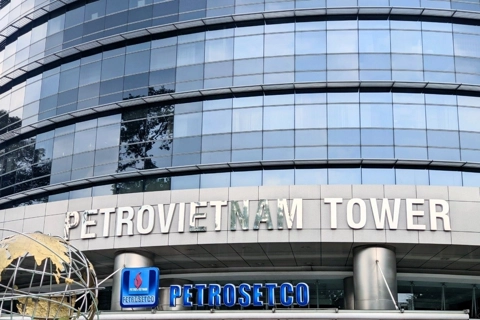Vietnamese Gov’t to pour money into offshore wind exploration
Resolving the challenges of gas and offshore wind projects is critical to achieving the goals of the Power Development Plan VIII (PDP8) and ensuring energy security to support economic and social development.
The Ministry of Industry and Trade, along with relevant agencies, has been tasked with developing a pilot initiative to use the state budget for the exploration, study, and selection of investors for offshore wind power projects.
| Deputy Prime Minister Tran Hong Ha at the meeting. Photo: VGP |
The directive was given by Deputy Prime Minister Tran Hong Ha during the conclusion of a meeting this week to address challenges for offshore wind and gas projects.
According to the Power Development Plan (PDP8), offshore wind power is expected to reach approximately 6,000 MW by 2030, with the potential for further growth based on technological advances and reasonable electricity prices and transmission costs. However, as of now, no projects have been officially approved or assigned to investors.
Deputy Minister of Industry and Trade Nguyen Sinh Nhat Tan pointed out that offshore wind projects are facing challenges, in particular the lack of unified regulations for allocating sea areas for organizations and individuals using extra-budgetary funds for exploration, surveys, and measurements.
These projects also face difficulties in allocating sea areas to foreign investors, conducting tenders and selecting investors, and managing conflicts with marine exploitation activities to ensure national security.
To address these challenges and expedite the implementation of offshore wind projects, Deputy Prime Minister Tran Hong Ha has instructed the Ministry of Industry and Trade to work with other relevant ministries and agencies to formulate a pilot plan to be funded by the state budget for the exploration, investigation, and survey of offshore wind projects. The plan should also include the approval of project directions and the selection of investors.
Ha also agreed to establish an interdisciplinary working group, led by the Ministry of Industry and Trade, and including representatives from the Ministries of Natural Resources and Environment, National Defense, Public Security, Planning and Investment, Agriculture and Rural Development, and Transport.
This working group aims to resolve legal issues and make recommendations, with immediate consideration being given to appointing state-owned enterprises such as EVN and PVN to conduct studies, surveys, and assessments of offshore wind potential.
| The wind power plant No.7 in Soc Trang Province. Photo: The Hanoi Times |
Furthermore, according to Deputy Minister of Planning and Investment Do Thanh Trung, the investment procedures for gas and offshore wind projects need to be implemented simultaneously with the completion of regulations to ensure the timeline and goals of the development plan.
According to the PDP8, over 30,420 MW of thermal power needs to be invested by 2030, of which 75% is LNG power (22,824 MW). However, there are barriers, such as the lack of a legal framework for negotiating Power Purchase Agreements (PPAs) with long-term commitment to purchase output, and the pricing mechanism for gas-to-electricity conversion in LNG power projects.
In reality, a gas power project typically takes 7-8 years from the investment preparation phase (contractor selection, preparation and approval of feasibility studies, or negotiation of power purchase agreements) to completion. Similarly, for offshore wind projects, the implementation timeframe is around 6-8 years from the survey phase. Therefore, investing and deploying projects to meet the pre-2030 operational deadlines pose a significant challenge.
Minister of Industry and Trade Nguyen Hong Dien emphasized the need to establish new mechanisms and policies, not just pilot programs, as “investing in gas and offshore wind projects is a new field with unclear regulations”.
Deputy Prime Minister Tran Hong Ha concluded the meeting by stating that solving the challenges of gas and offshore wind projects is crucial for achieving the goals of PDP8 and ensuring energy security to support economic and social development, as well as attracting investments.
He therefore instructed the relevant ministries to review the entire investment procedure for gas and offshore wind projects and propose solutions to shorten the implementation time for these energy sources.













